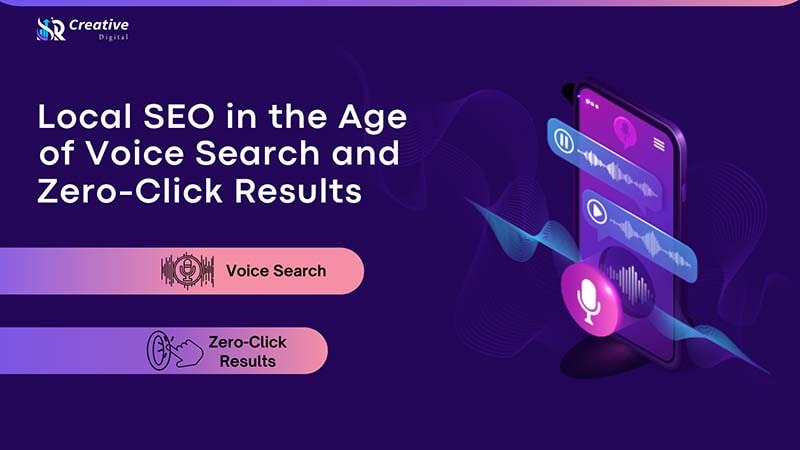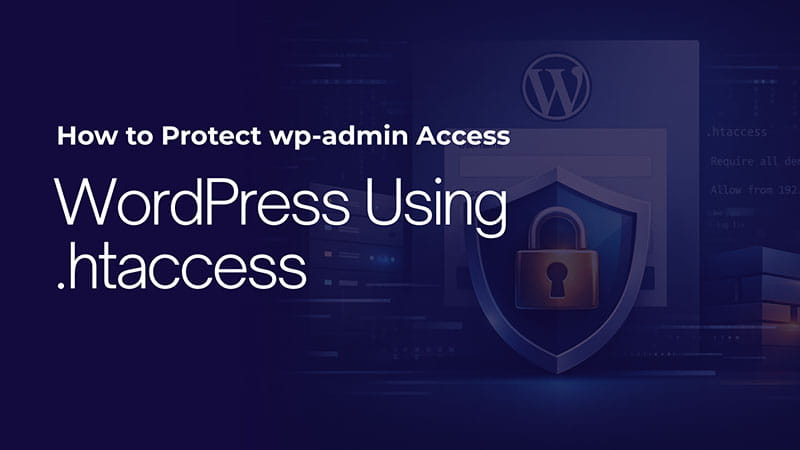Local SEO is changing its face in the present digital world. The time that users just typed queries in Google and clicked on a link is rapidly changing. The change is mainly due to two developments: voice search and zero-click results. The two changes, in fact, pose a significant challenge to businesses, i.e., those local ones that are heavily dependent on online visibility and foot traffic for their growth and survival.
This article will explain the changes caused by these trends, how they are changing local SEO, and provide actionable strategies to stay ahead.
What Are Voice Search & Zero-Click Results?
Voice Search
Voice search is all about questions that one speaks instead of typing. It can be done through a smartphone, a smart speaker (e.g., Alexa, Google Assistant), or any other voice-enabled device. Some characteristics of voice queries are:
- More conversational: “Where’s the nearest coffee shop open right now?” instead of “coffee shop near me”.
- Being longer and having more natural language.
- Most of the time, they are local by nature (e.g., “Show me a plumber in Dallas”).
Zero-Click Results
A zero-click search is when the user’s question is solved right on the search engine results page (SERP) without the need to visit a website. These solutions can be presented with the help of featured snippets, knowledge panels, maps/local pack results, or voice assistant replies.
Key facts:
- In the case of a large number of queries, particularly local and mobile ones, users do not click on organic listings as they obtain the required information straight away.
- One of the main factors that leads to the increase in zero-click interaction is the use of voice search and smart assistants.
Why This Shift Matters for Local Businesses
1. Changes in User Behavior
- Most of the local searches are getting mobile and voice-oriented, such as “near me”, “open now”, “rating”, and so on.
- Consumers want instant solutions and ease of use. If your business info is not delivered at that time, you lose a chance.
- In the case of zero-click results, fewer users may visit your website through the link that they get from the search engine results page; however, your business can still be visible, trusted, or even contacted directly through the SERP or listing.
2. SEO Metrics and Value Are Changing
- Clicks and website visits, which are the traditional metrics for measuring local SEO, are becoming less dependable.
- What we really need to do is to look at these activities. Call button clicked, directions requested, and booking made from a map listing are some of the actions that should be given more importance than just visiting the site.
- Being visible in a panel of information or a map pack might be more important than being ranked number one in the organic search.
3. Local Businesses Have Unique Opportunities
- Small businesses have the opportunity to utilize such things as map packs, business profiles, voice results, and more in order to attract customers who are looking for a solution at the exact point of their decision-making.
- As local search is mainly associated with a transactional or very close-to-transactional intent (for example, “open now”, “near me”), being featured straight in smart results can really bring in the traffic.
Strategies for Local SEO in the Voice & Zero-Click Era
Here are actionable tactics you can use to optimize your local business for the changing search environment.
A. Claim and Perfect Your Business Listings
- Ensure that your listing on Google My Business (now called Google Business Profile) is not only claimed and verified but is also fully completed with (name, address, phone number, hours, categories, photos).
- Keep your NAP (Name, Address, Phone) the same across all directories, citations, and listings. NAP inconsistencies will lower your local ranking.
- Get and respond to reviews: The number and quality of reviews have a great impact on the trust and local pack positioning.
- Help customers discover that your business is active and engaging by using business posts, offers, and Q&A on your profile to signal freshness.
B. Optimize for Voice & Conversational Queries
Structure your content and FAQs around the spoken language of the people rather than the written language. For instance:
“What time does the bakery on Main Street in Dallas close?”
- Implement question-answer formats: titles such as “When does X open?” “Is X open on Sunday?”
- Use local-specific terms like “near me”, “open now”, “best in [location]”.
- Taking into consideration the trend of voice and mobile usage, make sure that your pages are mobile-friendly and quick-loading.
C. Schema Markup & Structured Data
- Employing structured data (Schema.org) can be a great help to search engines in comprehending your business and content. A local business should employ the LocalBusiness schema. An FAQ should be represented by the FAQPage schema. A service page should contain the Service schema.
- In the case of local search, additionally, your business address, hours, price range, reviews, etc. should be marked up. This, in turn, would increase the opportunities for getting rich results as well as zero-click features.
D. Content Strategy for Zero-Click & Local Visibility
- Create content that solutions the questions fast and explicitly. Most of the time, search engines utilize direct answers for the featured snippets.
- Lists, tables, and brief paragraphs should be used to make the content extractable for “position zero” snippets.
- Regarding local content: develop pages or blog posts that are focused on neighborhoods, frequently asked customer questions, local events, and “what to do near here”.
- Example heading: “How to choose the best plumber in Dallas” → giving a brief answer followed by the details and a link to the service page.
E. Monitor and Track Meaningful Actions, Not Just Clicks
In your analytics and Google Business Profile dashboard, track:
- How many phone calls came from listing
- How many direction requests
- How many booking or appointment actions occurred
Accept that website traffic might not be your primary KPI anymore. Visibility and conversion may be more relevant.
F. Leverage Local Pack & Map Pack Optimization
- Local pack (map + 3 business listings) dominates many local queries. Optimize for it:
- Choose correct business categories
- Get local backlinks from reputable sites
- Build citations in local directories, local media sources
- Choose correct business categories
- Optimize for “near me” queries: ensure you serve nearby geographic intent (specify city, region, landmarks).
- When people use voice search like “Where is the nearest shoe repair shop?”, you want your business to be the one pulled into that local pack.
Local SEO Checklist for Voice & Zero-Click Readiness
| Task | Why It Matters |
|---|---|
| Claim & verify Google Business Profile | Ensures you appear in local pack / map results |
| Consistent NAP across web & directories | Builds trust & local ranking integrity |
| Use conversational FAQs on your website | Matches voice search queries and snippet targets |
| Add LocalBusiness & FAQ schema | Helps search engines extract your details for rich results |
| Track actions (calls, directions) not just clicks | Focuses on real conversions, not just traffic |
| Create geo-targeted content (blogs, pages) | Captures local intent, long-tail queries, voice queries |
| Encourage reviews & respond promptly | Boosts visibility and trust in local listings |
| Make website mobile-fast & structured | Voice and local users often use mobile; structure helps snippets |
Why Local Businesses Should Embrace the Change — Not Fear It
- Visibility over clicks: Just by being in rich snippets or map packs, even if users don’t click through to your website, means that people still see your brand, address, phone number, and hand ours—this can thus be the source of calls and visits.
- High-intent audience: Most of the time, local searches have an immediate intention (opening hours, directions, phone call). The moment you satisfy that query, you are the winner.
- Opportunity for small businesses: Big brands usually focus on broad keywords, but “voice + local” queries are very specific and therefore have small niches.
- Build trust and authority: Accuracy, consistency, and being responsive are trust factors that ultimately lead to getting more trust, something very important as search engines tend to give more authority to trust, especially in voice and zero-click scenarios.





